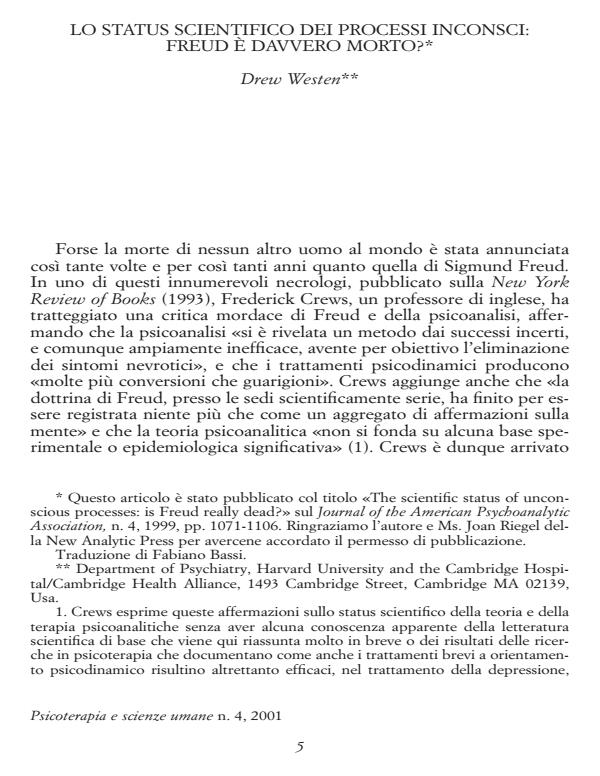Lo status scientifico dei processi inconsci: Freud è davvero morto?
Journal title PSICOTERAPIA E SCIENZE UMANE
Author/s Drew Westen
Publishing Year 1994 Issue 2001/4
Language Italian Pages 54 P. File size 181 KB
DOI
DOI is like a bar code for intellectual property: to have more infomation
click here
Below, you can see the article first page
If you want to buy this article in PDF format, you can do it, following the instructions to buy download credits

FrancoAngeli is member of Publishers International Linking Association, Inc (PILA), a not-for-profit association which run the CrossRef service enabling links to and from online scholarly content.
Lo status scientifico dei processi inconsci: Freud è davvero morto? At regular intervals for half a century, critiques of Freud and psychoanalysis have emerged in the popular media and intellectual circles, usually declaring that Freud has died some new and agonizing death, and that the enterprise he created should be buried along with him like artifacts in the tomb of an Egyptian king. Although the critiques take many forms, one of the central claims has long been that unconscious processes, like other psychoanalytic constructs, lack any basis in scientific research. In recent years, however, a large body of experimental research has emerged in a number of independent literatures (such as research on unconscious thought, unconscious affective learning, unconscious prejudice, and the differential neural circuitry undelying conscious and unconscious processes) documenting the most fundamental tenet of psychoanalysis, that much of mental life is unconscious, and that this extends to cognitive, affective, and motivational processes. Examination of this body of research points both to revisions in the psychoanalytic understanding of unconscious processes and to the conclusion that, based on controlled scientific investigations alone (that is, without even considering clinical data), the repeated broadside attacks on psychoanalysis are no longer tenable.
Drew Westen, Lo status scientifico dei processi inconsci: Freud è davvero morto? in "PSICOTERAPIA E SCIENZE UMANE" 4/2001, pp , DOI: